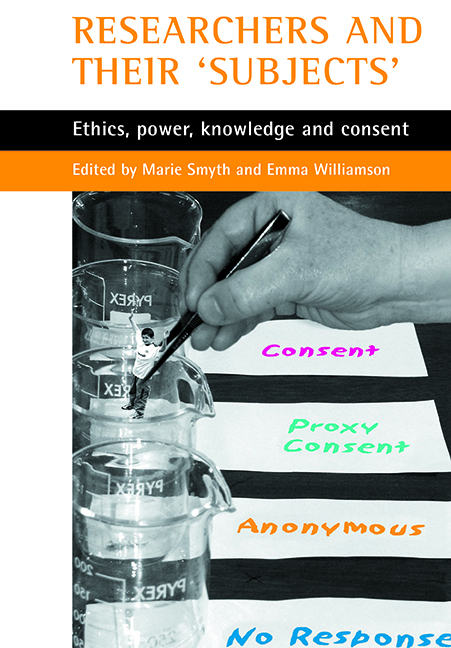seven - Interviewing: the unspoken compact
Published online by Cambridge University Press: 20 January 2022
Summary
Introduction
My ethical approach developed before I knew about the National Union of Journalists’ (NUJ) Code of Conduct, before I ever understood the pitfalls of the industry I was working in. I can speak only for myself. As a freelance journalist, I have written for many different publications, from the Sunday Times Magazine to the Sunday People newspaper. If any of them had a house policy on matters of research, I did not know about it.
Investigative journalism
I consider bearing witness to be one of the most important functions of investigative journalism, not just about the public events of politics and society, the wrongs that need righting, but about the personal things, the human things that touch us all. What does it feel like to have a terminal illness, or to lose a child? What leads a person to torture another or to commit suicide? These experiences of the darker side of being human are often airbrushed out of newspapers, whose editors are driven by the twin imperatives, first, of hanging on to circulation, and second, of hanging on to their jobs.
Investigative journalism holds an uneasy position in the world of newspapers. On the one hand, it embodies the virtues that most people associate with the romantic image of the journalist as crusader. One thinks of Hollywood films such as All the President’s Men, which dealt with the Watergate affair and which featured Robert Redford as one of the most good-looking men ever to grace a newsroom. This type of journalism is seen as high-minded, driven by idealism, and the journalists are seen as incorruptible. It can expose wrongdoing even at the highest levels of society, uncovering truths that vested interests would prefer suppressed. It is the reason that society tolerates many of the excesses of less serious journalism.
On the other hand, it has become seriously devalued in newspaper circles, because it takes too long, devours too many of a publication’s resources and leads to risky legal cases. Apart from an elite few journalists, who are given huge resources on the basis of their reputation, those who practise it are given less money, less prestige and less interest from editors, despite the fact that the best investigative journalism can add thousands to a paper’s circulation, as Watergate enhanced the circulation and reputation of the Washington Post.
- Type
- Chapter
- Information
- Researchers and their 'Subjects'Ethics, Power, Knowledge and Consent, pp. 121 - 136Publisher: Bristol University PressPrint publication year: 2004

